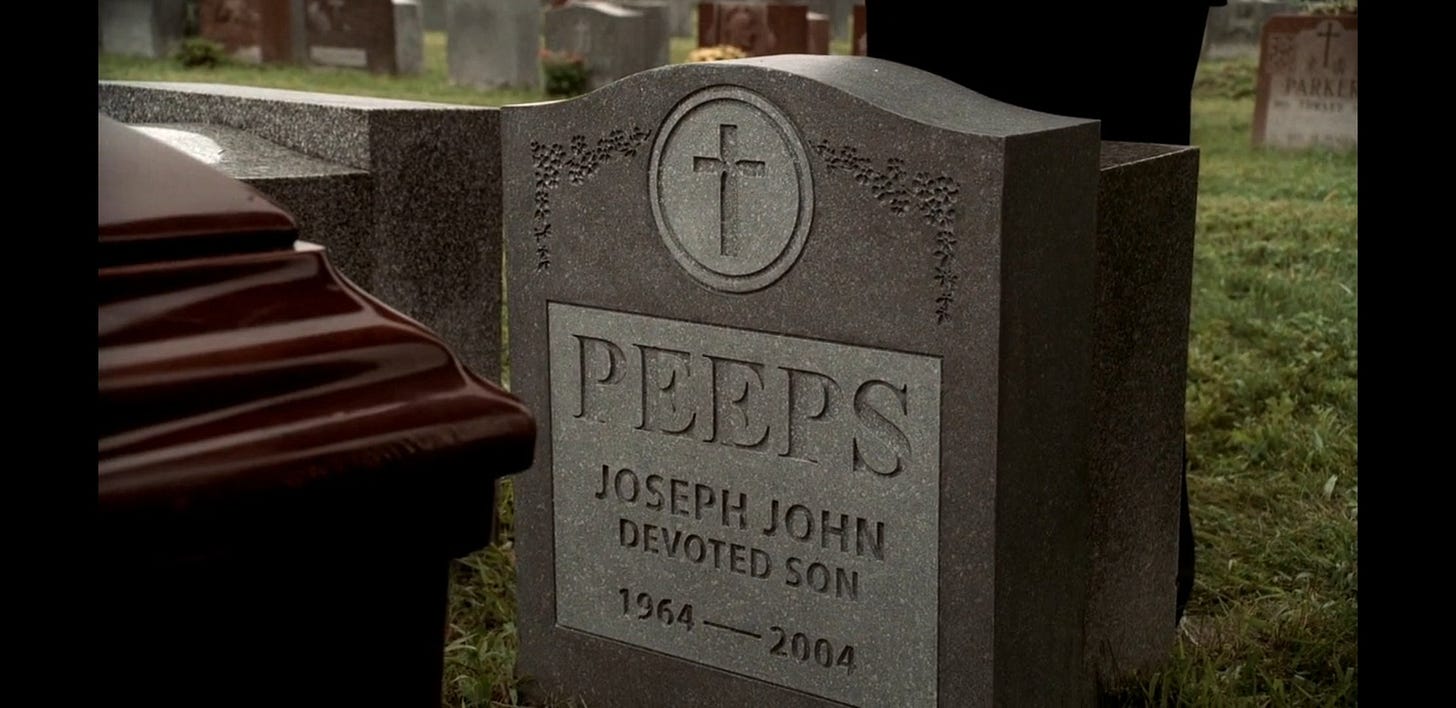
I should probably start by defending my stance that “Marco Polo” marks the beginning of Tony and Carmela’s reunion, since “Unidentified Black Males” doesn’t just walk their relationship back into separation limbo, but depicts Carmela pushing toward divorce — pushing to “move ahead,” as she phrases it, more than once. But I see this momentum change as an overcorrection, an effort to regain her short-lived independence. By ceding even a small amount of space in her life, Carmela opens up an opportunity for Tony to reclaim total control, and he seizes it. There’s nothing she can do to turn back the clock. The bear is back, metaphorically and literally.
As she told her father during her short-lived affair with Wegler, Carm can never get out of the shadow of her husband — and, by the episode’s end, she can no longer cling to the hope that at least her daughter will. When Meadow calls to say she and Finn are engaged, Edie Falco pulls off an Allison Williams in Get Out-tier feat of face acting vs. voice acting: she sounds calm and happy; she looks distraught. Finn is nothing like Tony, and Carm has seen nothing of the frustrating, impossible chain of events that drove this lanky idiot to propose. But she knows, half-talking to her daughter, half-watching her husband float in the pool, that her daughter is heading down a path she’ll never be able to un-walk.
Carmela’s desire for Meadow to escape her fate isn’t the only tangle of love and regret and projection here; their relationship feels straightforward and untormented compared to what’s taking shape between Tony Soprano and Tony Blundetto. It’s unclear, often, whether Tony S. is protecting Tony B. or simply protecting himself. Does he want to save his cousin from his worst impulses, or does he just want him to channel those impulses in a way that doesn’t complicate his own life? If it’s the former, is that an urge motivated by genuine care for Tony B.’s well-being or continued guilt about the point where their paths diverged?
We don’t get a comprehensive answer to those questions, but we do get one massive clarification. The episode’s title and its many reminders of this community’s habit of scapegoating young black men — and the mention of Jackie Junior, whose death was the most prominent example of that scapegoating up to this point — hint that there’s more to Tony B.’s arrest than Tony S. has let on. (Although by this point, we shouldn’t need context clues to to suspect that any narrative Tony tells is partial at best.) But the episode juggles many storylines and scatters these hints across all of them; it’s easy to miss the larger point they add up to, up until Tony finally does the math himself in the second therapy scene.
It’s not surprising that Tony missed the hijacking that sent Tony B. to prison because he was having a panic attack, and the fact that his mother, wife, and daughter were all part of the stress isn’t exactly a plot twist either. But those details are telling nonetheless. The extra memories call attention to another inverse relationship between the two of them: Tony B. has been left behind by his wife and daughter, but his mother, according to all available evidence, adores him.
And that inversion gives further context for Tony’s unwillingness to let go of Meadow or Carmela (and, less saliently but still significantly, his inability to move on from his mother.) He refuses to let his wife divorce him; he refuses to accept that his daughter is mature enough to have a boyfriend who can pick up the dinner tab. He knows it would benefit them both to have distance from him — even at his worst, he wants, deep down, for both of them to live their best lives, knowing fully that would mean a life without his presence or influence. But he also suspects that distance would be a fair punishment for his abandonment of Tony B. — and so his immediate instinct is to fight it, to try to stave it off long enough that he convince himself that he doesn’t deserve that consequence.

